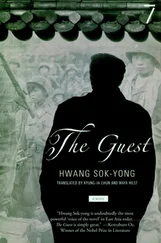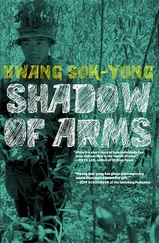He stepped through the gate and called out: “Mother, can you bring me some cold water?” Who should come out of the kitchen then but this short, bob-haired girl carrying a bowl of water with both hands …
He forgot all about the water and stared at her stupidly before finally asking: “Who’re you, Comrade?”
Grandmother answered for her.
“Who do you think? That’s your wife.”
Father practically jumped out of his skin at that and ran for the station, where he hopped the first train for Pyongyang. About a month later, he was ordered to report to the academic affairs office. The professor in charge of monitoring the students stood with his cheeks puffed out and studied him for a moment before gesturing with his chin for him to sit down.
“I didn’t think you were the type, Comrade — only a student, but already you’re married … Now, I know your mother’s a widow and girls run in your family, so I understand why you want to get started as soon as possible and try for a son. But explain to me why you abandoned your wife.”
Father, flabbergasted, started talking gibberish.
“No, uh, it’s not like that, you see, I went home for a short visit and out of the blue my mother said I was married so I hurried back to school and —”
Just then the door cracked open, and Grandmother stuck her head in.
“Hey! We’re here,” she said, and stepped inside. Then she glanced back at someone and said: “Well, come in already.”
The bob-haired girl followed her in, head hanging down, and bowed wordlessly at the professor. Father’s face turned bright red. He got up without saying a word.
“We don’t need to discuss this any further,” the professor said. “I’ll issue you a pass so you can escort your mother home. You’re married now. Time to go home and consummate it.”
“I have to finish school first …”
“You should’ve thought about that before you got married! Go on, now. If you stick around any longer, I’ll have to tell your comrades. If the Youth Association gets wind of this, you’ll be marked as a bad element, maybe even as a decadent, and you’ll be expelled.”
So that was how Father wound up being dragged back to Chongjin. From the moment they boarded the train, Grandmother started laying down threats.
“No more running around from now on. This union was arranged by my guardian spirit, so if you don’t do as I say, we’re through. You’ll go your way, and I’ll go mine.”
Grandmother produced a baby sling from somewhere and tied one end around Father’s leg where he was sitting. Then she tied a round knot into the sling and held it up to Mother’s ankle.
“Lift your foot, girl. Slip it through this.”
Mother took off her rubber shoe, pulled up her sagging sock, and said: “Make it tight.”
Father told us that when he turned his head to see what the two women were doing, Mother met his eye and stuck her tongue out at him. (Right up until we were all separated, any time that story happened to come up when they were fighting, Father would burst out: “I should’ve chopped my leg off and run away to start a new life back when I had the chance!”) Grandmother wrapped the free end of the sling around her wrist several times and then let out a long sigh, as if she could finally relax. At this point in the story, my sisters and I would ask her: “Why did you decide to make Mother your daughter-in-law?” Grandmother would tell us about the dream she’d had, and how she had gone to our mother’s village to find her.
“I dreamed that a celestial maiden fell out of the sky and landed with a loud thud right on top of the house. She rolled off the roof and into the courtyard. I called out: ‘Hello, hello, if you’re a ghost, then back off, and if you’re a person, then be on your way.’ But she told me she had tended the garden of the Great Jade Emperor in his heavenly palace, and that she’d been dropped to Earth as punishment for overwatering the flowers and causing them to fall from their stems.
“I glanced around the courtyard, and sure enough, there were exactly seven flowers lying on the ground. She picked them up one by one and offered them to me. I put out my hand to take them, but before I could, that crazy girl opened the gate and took a hop, skip and a jump backwards and ran off. I ran after her. I chased her all the way to a sorghum-stalk fence in front of someone’s house, and then I woke up.
“The dream was so strange that I went outside to take a look. The road the celestial maiden had taken led to the next village. I wound my way down the road just like I had in the dream, and ended up at a house surrounded by a sorghum-stalk fence and thought: How curious is this? When I went into the yard, a girl was singing. She was wiping down the large clay jars on the jangdokdae . She had cleaned the soybean paste jars and soy sauce jars to a high shine. From behind, she had a nice rump, and though I’m a woman myself and not a man, that butt of hers was as plump and tantalizing as a peony. So I invited her to come and live with us. I met her parents too and told them all about your father.”
Everyone in the family knew that Grandmother had a strange gift, but Father alone refused to acknowledge it. Nevertheless, whenever it was the end of the year or the start of a new one, or when he woke up in the morning from an unsettling dream, he would stealthily ask her what his fortune held. “Oh, and then,” he would mutter, as if to himself, “this water jar split in two, and a catfish the size of my forearm came wriggling out.”
But not only would Grandmother not interpret his dream for him, she would toy with him by playing stupid: “Mm, we should boil up some catfish stew! Give the whole family a feast.”
Since our mother kept winding up pregnant with another of us while she was still struggling to recover from the last pregnancy and take care of the latest newborn, she wasn’t able to go to work like the other mothers. Our parents must have been more careful after Mi, the third girl, was born, because it was three years before Jung came along. Mother used that time to finally get out of the house. She helped with making side dishes in one of the food factories that had started on the collective farms and in cities and counties across the country during the postwar recovery years; then, later, she was assigned to a recreation centre where she learned hair cutting and styling techniques. After six months, she worked in the barbershop of a public bath in the city.
But because of Father’s and Grandmother’s unquenchable desire for a son and grandson, Mother was only able to work for about a year, including her apprenticeship period, before she had to quit. After the incident where Father held Sook under the bathwater, Mother seemed to give up entirely on the idea of doing something different with her life. Everyone said Sook wound up the way she did after having the measles, but Mother and Grandmother blamed Father for it and talked behind his back about how it was his fault for holding the newborn under water. Up until she’d passed her third birthday, it seemed as if she was just slow to start talking, but then they realized she’d been a deaf-mute all along.
*
I was attending a local kindergarten at the time, so I must have been about five years old. The azaleas had bloomed a bright red at the top of the hill, and my sisters were out filling their baskets with freshly-picked shepherd’s purse, which means it had to be early spring.
I was sitting on the sunny twenmaru porch just off the main room, basking in the warm sun, when Hindungi suddenly crossed the courtyard, heading straight for the front gate and growling. Her ears were folded back, and she bared her teeth and started barking ferociously. Wondering who it was, I went over to the gate and pushed open the wooden door. A little girl, just a bit bigger than me, was standing there. She wore a shin-length mongdang skirt and a jeogori blouse, both made from white cotton. I thought she was one of Hyun’s friends coming over to play. I said: “Hyun’s not home right now,” but the girl just stared straight at me without saying a word. Hindungi was still barking wildly behind me, but the girl didn’t look the least bit scared.
Читать дальше












